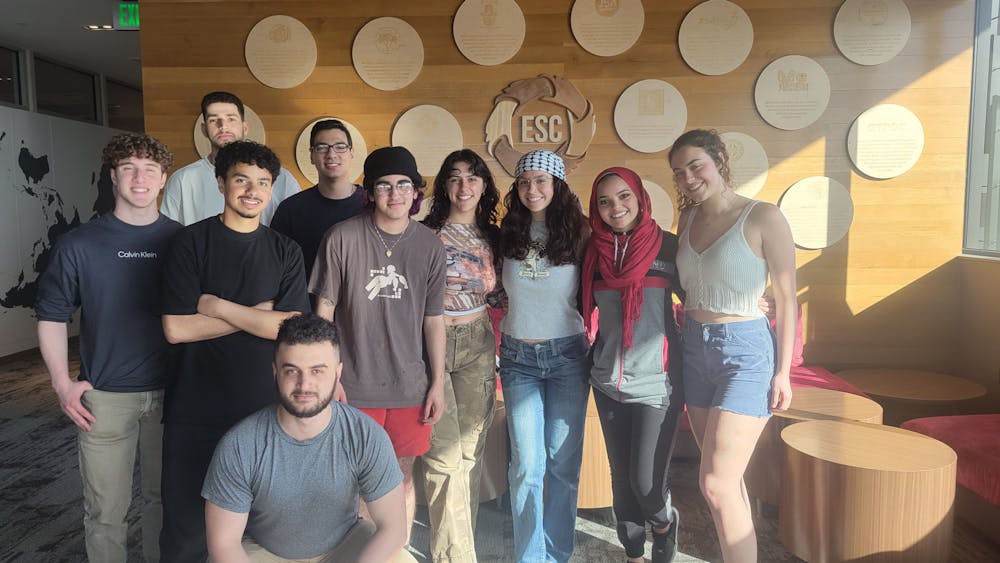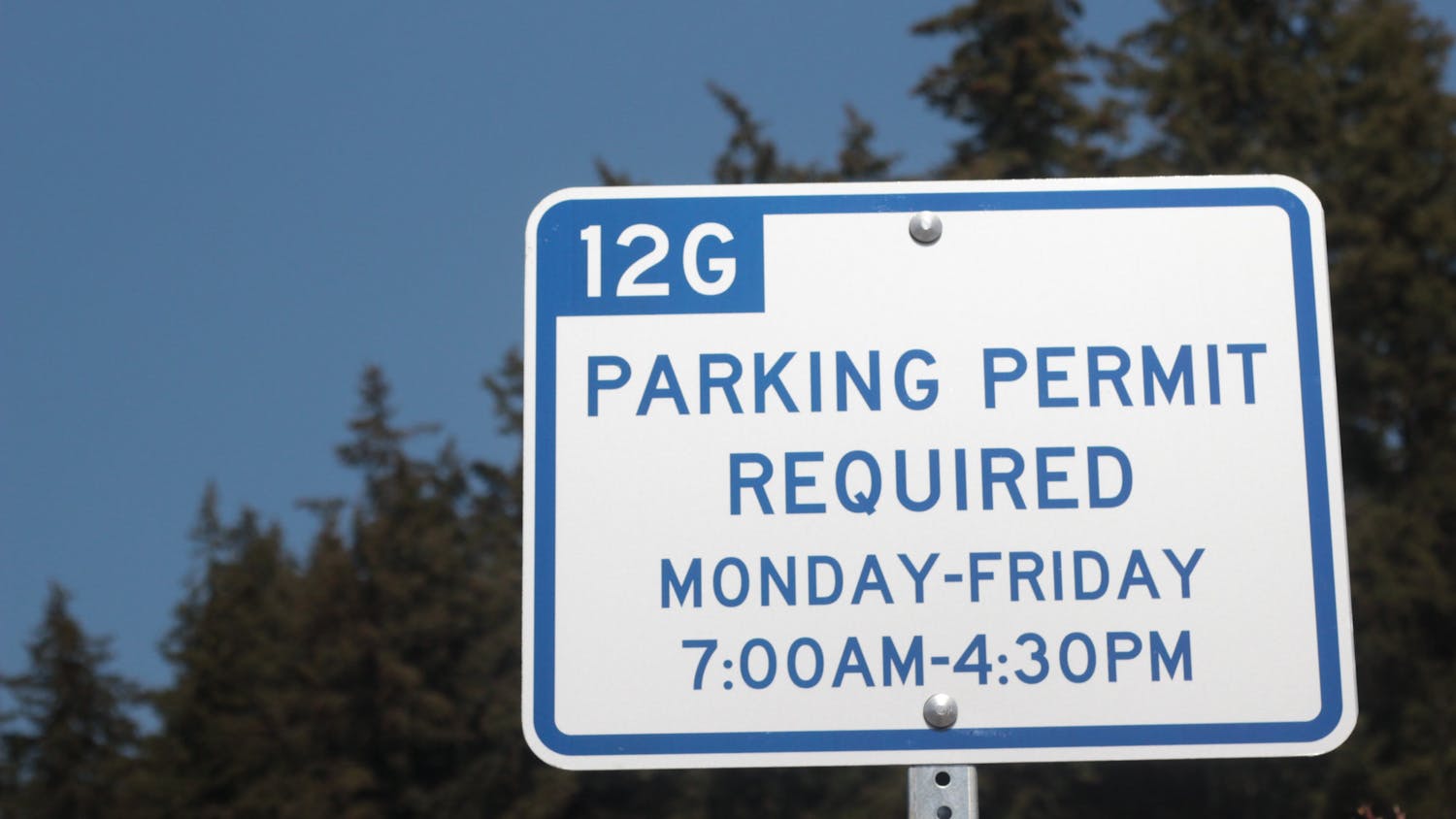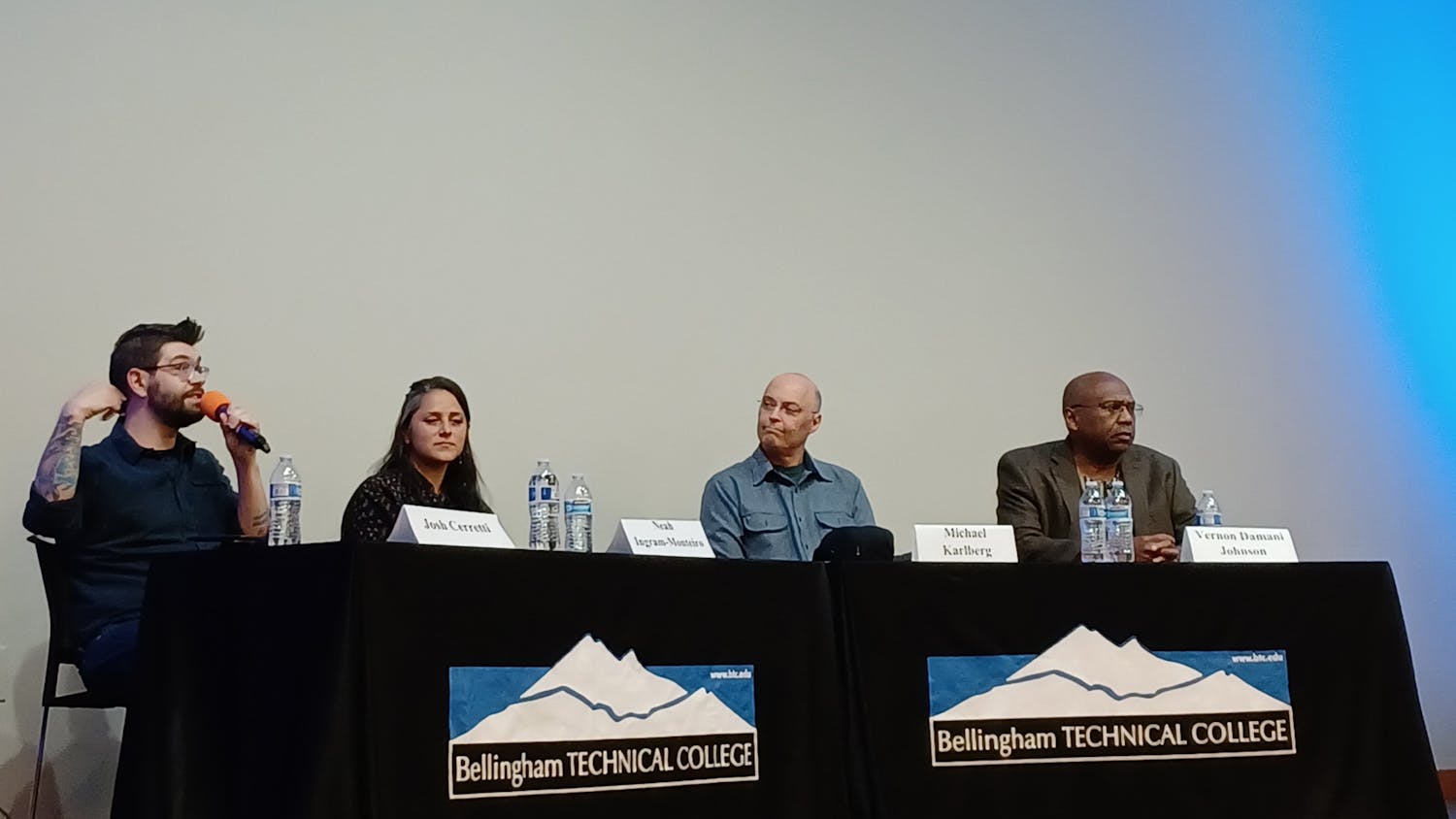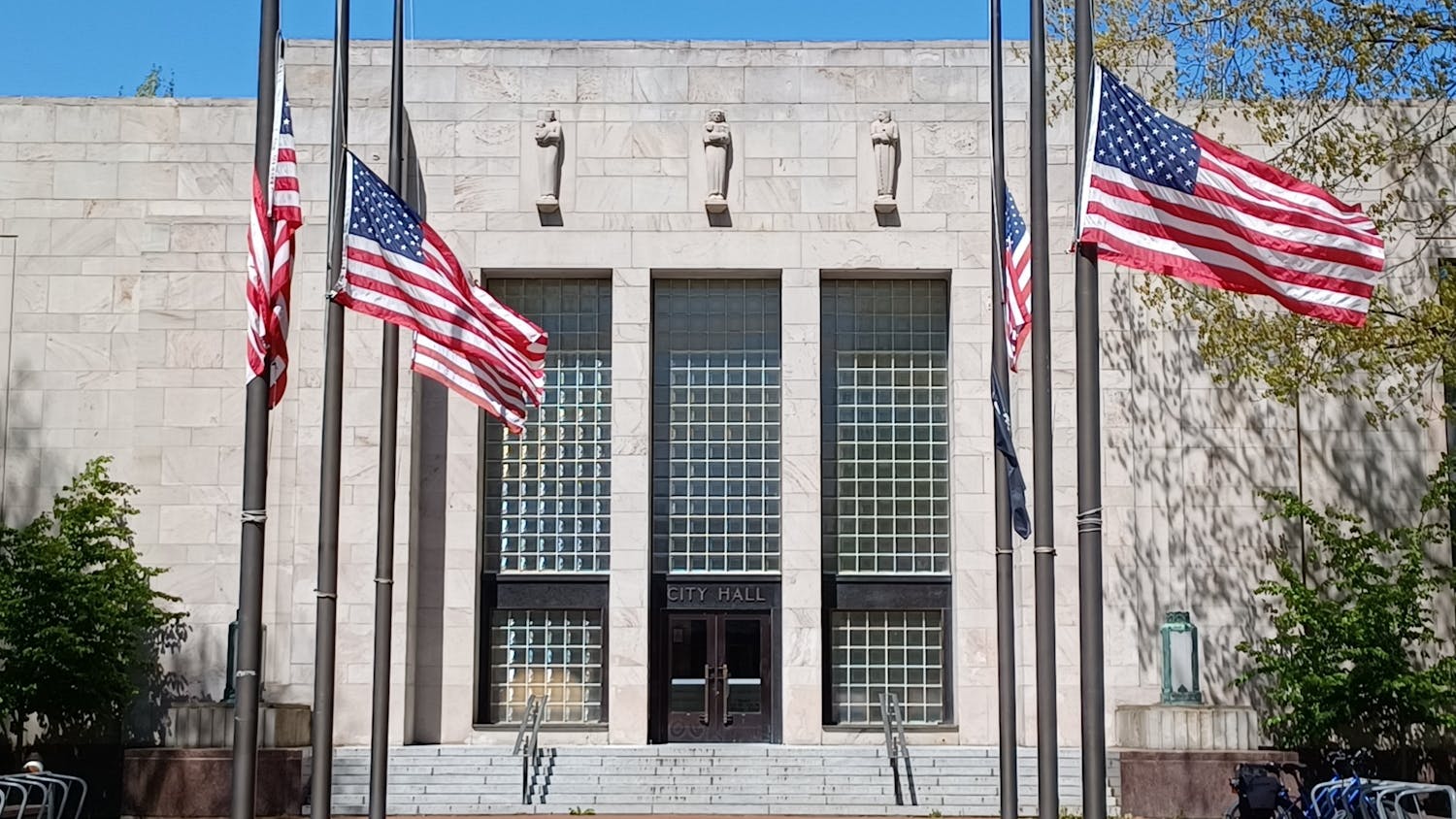Correction: A previous version of this story misidentified the occupation of Palestine as the conflict of Palestine. This story has been updated for clarity and to correct the error.
Western Washington University’s Arab Student Association hosted a food workshop alongside several other Ethnic Student Center clubs on May 2. The ESC kitchen was alive with a flurry of activity and conversation, with members from each club intermingling as they prepared cultural dishes.
Jasmine Welaye, the ASA’s vice president, said it reminded her of being with family.
“They’re all overseas so I don't get to see them that often. So whenever we do events like this, all just hanging out and stuff, it’s really special,” they said.
The ASA was co-founded in 2018 by Sofian Mahmoud and Saniah Naim after they recognized that there were no student groups at Western for Arabs or Middle Easterners. According to Sofian, a lot of the credit goes to Naim, who took on a large amount of work and acted as a rock for him and other organizers.
“We set out to create the space we wish we had when we first arrived to Western, and collaborated with other student groups to foster a strong, diverse, multifaceted community,” he said.
During her first year at Western, Sofian encouraged his younger sister, Anyssa Mahmoud, to join the club. She immediately fell in love with it.
“I found it to be really useful and almost like having a piece of home up in Bellingham,” she said.
Anyssa’s first year was cut short due to the COVID-19 pandemic and, after a year of online school before returning to campus, Anyssa declared to her roommate, Welaye, that they were going to bring back the ASA.
“She’s just like, ‘We’re doing this.’ And I was like, ‘Okay,’” Welaye said.

At the food workshop, the ASA chose to make the Levantine dish fatayer. As instructed by Anyssa, who currently serves as the club’s president, the dish was made by pulling apart biscuit dough, forming it into triangles, and filling it with a mixture of spinach, ricotta, feta and onions. The baked result was a golden-brown pie about the size of the palm of your hand, savory with a hint of sweetness.
To be Arab is to be a person who identifies with the cultural, linguistic and historical heritage of the regions where Arabic is the dominant language, according to Warren David, co-founder of the Arab America Foundation.
“It's important to note that being Arab is not a homogenous or monolithic identity,” he said.
There is diversity in the religion, language, ethnicity and culture of Arab people. This range of experiences is reflected in the ASA.
“We come from all different places across the Middle East and North Africa,” Anyssa said.
Laith Mahmud, the activities coordinator for the club, moved to the U.S. from Palestine at about 6 months old.
“I haven't had many opportunities to share my culture with others or, I guess, just learn about myself until I joined ASA,” he said.
Anyssa, Welaye and Mahmud all stressed the comfort that ASA has brought them and other Arab students in the club.
“It's really important that everyone gets to be around people who you don't have to explain things to and you can just get because you have similar experiences,” Welaye said.
As of fall 2022, 71.3% of Western students identified as not a person of color.
“Before going to any ASA meetings I hadn't met any Arabs on Western's campus,” Mahmud said. “It's hard to come across people of color.”
Discrimination, harassment and bias have all been known to be challenges that Arab American students may face in higher education. Anyssa has dealt with many people espousing racism and anti-Palestinian rhetoric, including people who deny that Palestinans even exist.
“Being on this campus is kind of like constantly having your guard up and being in this space with all these people has [allowed] for us to put our guards down,” Anyssa said.
The ASA hosts many different food events, including making kanafa, a Palestinian dessert, and a falafel night. They also will watch Arab comedians together and do various outdoor activities.
They’ve also had many important discussions, such as talking about the occupation in Palestine and issues like colorism within their own community.
“I think a lot of things happen across the world, especially in the Middle East, where people write it off – especially if we’re talking about violence or wars or anything like that. It doesn’t seem like people know about it or care about it,” Welaye said.
Though there’s a way to go in terms of expanding these discussions to the university at large, the ASA has experienced much solidarity from other ESC clubs.
“We’ve really seen so much support,” Anyssa said. “It’s so beautiful seeing all the clubs come together and want to learn from each other’s cultures, and we really love being able to be a part of this space.”
Safety, cultural connection and a sense of home are all things that ASA has provided its members.
“I think after being in ASA and being a leader in ASA, it really showed me the strengths of having community,” Welaye said.
Kumiko Juker (she/her) is a campus life reporter for The Front this quarter. When she's not checking her email, she enjoys spending time with her friends, writing poetry and accumulating random knowledge. She can be reached at kumikojuker.thefront@gmail.com.






